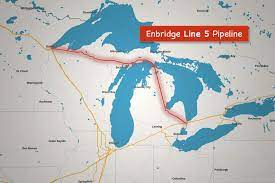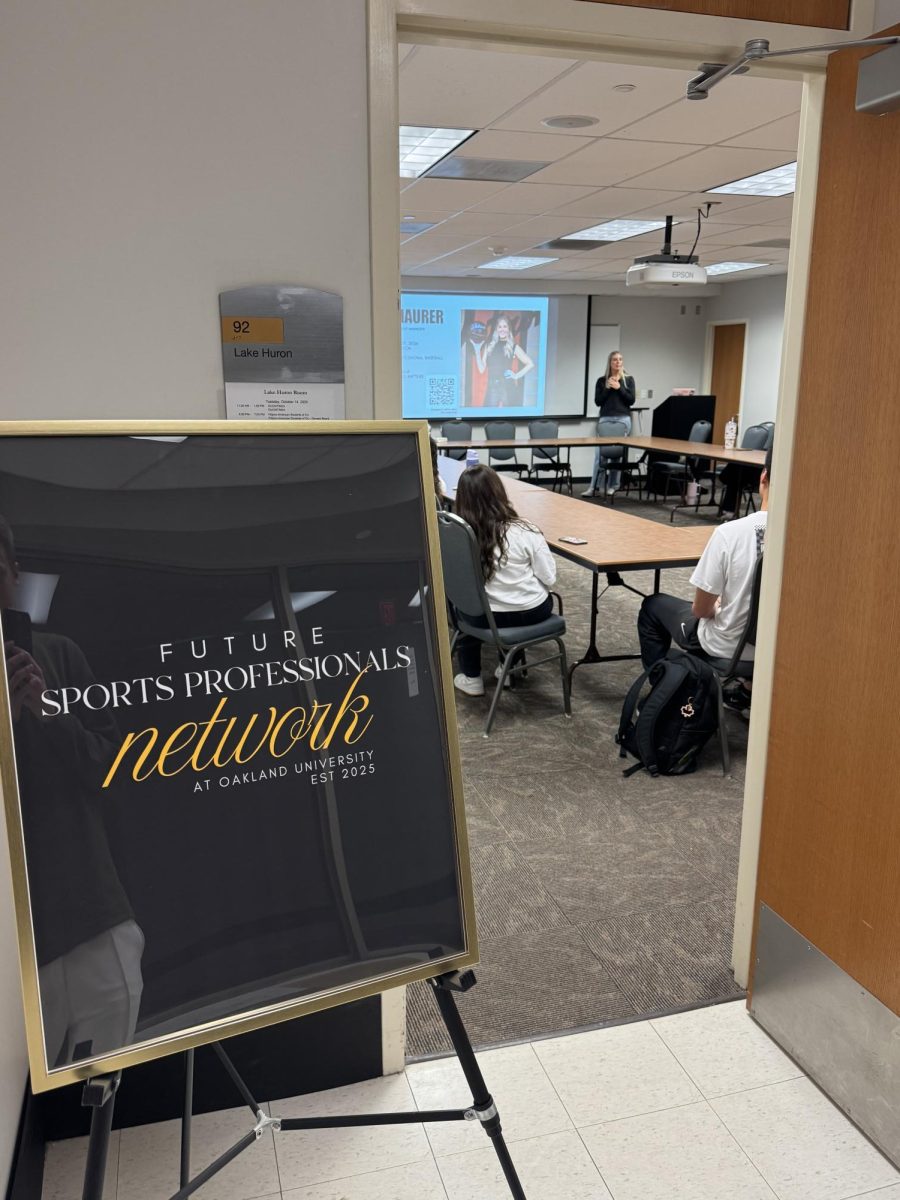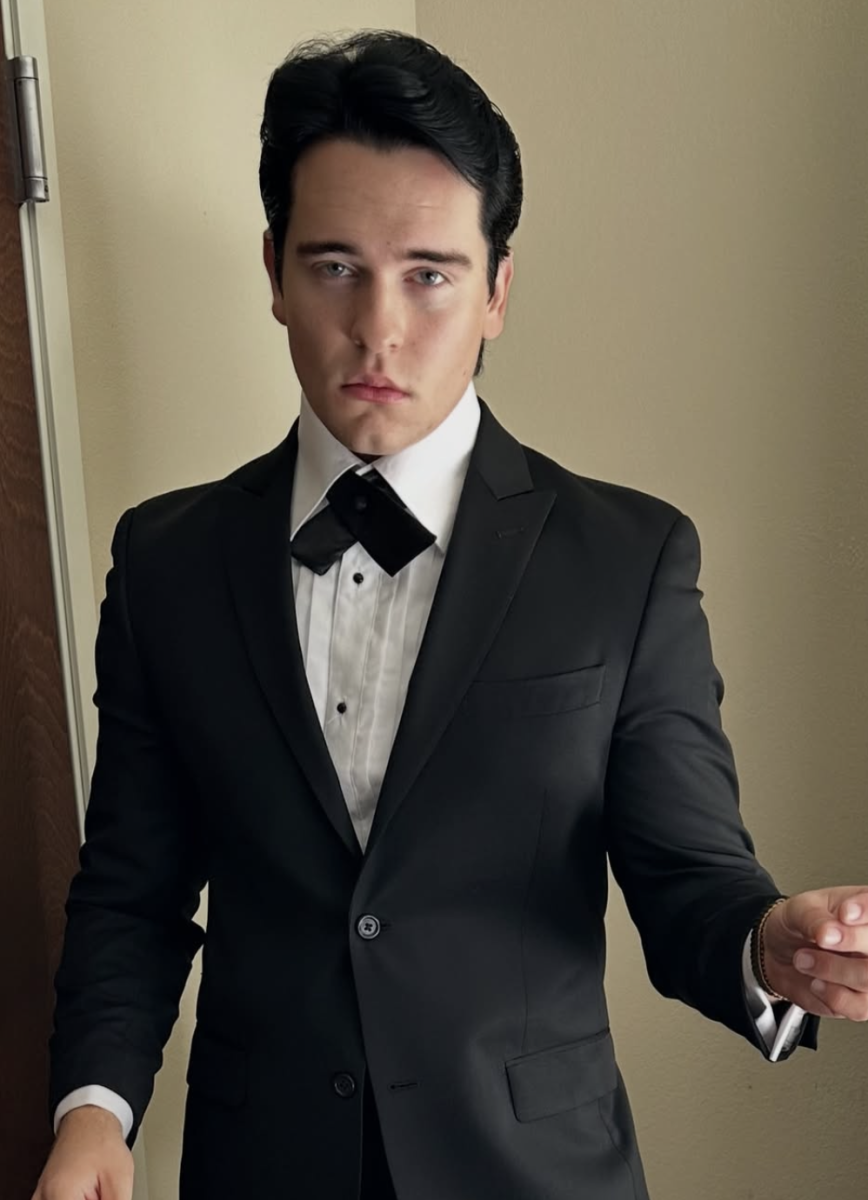
This summer, six students enrolled in Professor Jeffrey Insko’s Literature and Social Engagement course wrote a series of essays examining the social, cultural and theoretical aspects of Line 5. These essays, which are published on the Line 6B Citizens’ Blog, seek to address how we know Line 5, rather than considering the ways we have lived with the pipeline and the actions we must take to live without it.
Prior to the release of the “How to Know About Line 5” essay series, Insko spoke as a featured panelist at the 2023 Michigan Climate Summit “Shut Down Line 5” breakout session, which was hosted at Oakland University on June 2. At the session, Insko emphasized the importance of involving an array of diverse advocates in climate change advocacy efforts.
“What we need [for climate change advocacy] are new ways of living, new ways of being in relation with the more-than-human world and with one another,” Insko said. “We need people who can help us imagine those things.”
Insko’s Line 5 essay series allowed his students to reimagine the history and current state of Line 5 through storytelling.
The first set of essays in the series features the work of Shannon Waite and Lourd Razooq. Waite’s essay “Life As We Live It Now Is the Problem” explored the environmental harms caused by Line 5, urging the reader that, even though Line 5 is currently the status quo, there is hope for positive change in the future.
In “Aesthetics and the Dark Gratifications of Petroculture,” Razooq argues the personal benefits derived from the petroculture industry may blind the public to the harmful consequences of fossil fuel consumption.
The second set of essays is comprised of “What is the 1977 Transit Pipelines Treaty?” by Sydney Wendling and “The Great Lakes and the Rights of Water” by Paige Therrian.
“In my essay, I give a primer on the [1977 Transit Piplines] treaty’s history and notable articles within it, discuss why it is relevant to the Line 5 legal battles and mention the stakes of the treaty’s invocation, including undermining Indigenous sovereignty and prioritizing oil dependence over much-needed decarbonization,” Wendling said.
Therrian’s essay draws upon Indigenous worldviews, raising the argument that recognizing water as a rights-bearing entity would dismantle the human hierarchy that permeates non-native systems. Therrian asserts the reciprocal nature between humans and natural resources magnifies the harmful affects Line 5 poses to the environment.
The last two essays feature “Building Solidarity Along the Entirety of Line 5” by Ava Gardiner and “Chemical Valley and the Origins of Indigenous Resistance to Line 5” by Alma Dukovic.
Both pieces examine local communities that have been negatively impacted by Line 5, and their subsequent efforts to resist the project. Gardiner’s essay focuses on the pollution indirectly caused by Line 5 that has negatively impacted the city of Detroit. Dukovic details the threat Line 5 poses to Aamjiwnaang First Nation.
“I’m so grateful to have had the opportunity to work with and learn from such talented classmates and a remarkable professor,” Dukovic said. “ I loved that we had the opportunity to actively engage in work that contributes to the movement to shut down Line 5, which ultimately gives us some ideas about the ways we can collectively respond to the climate crisis.”
To read the “How to Know About Line 5” essay series and to learn more about environmental advocacy efforts regarding Line 5, visit the Line 6B Citizens’ Blog. To learn more about the thoughts and perspectives of the essay authors, visit the Line 5 student author Q&A folder.





Debi • Jul 31, 2023 at 2:41 PM
Questioning the way we do things is always a good idea. However, actually addressing those issues and making those changes takes far longer than Line 5 has.
I am very surprised and not a littke bit disappointed to hear not one mention of Enbridge, and its absolutely abyssmal record of safely and securely maintaining their lines and equipment, their record of shirking responsibility when accidents happen, and of lying about the basic facts of those accidents. In the short term, we simply can not afford to allow this company to continue operating *any* sensitive infrastructure in this country, let alone operating Line 5 in Michigan.
Yousef • Aug 3, 2023 at 3:28 PM
So do you oppose pipelines or just enbridges management of those pipelines?
Jeffrey Insko • Sep 6, 2023 at 9:19 AM
I’m not really sure what you’re talking about. You should probably read the essays, every one of which is about Enbridge and there’s a lot of discussion of their record.
Robert Anderson • Jul 19, 2023 at 12:02 PM
Thank you for this excellent article highlighting the important work OU students to address and redress the problems facing us today-and of Professor Insko’s innovative and inspiring teaching.
yousef • Jul 19, 2023 at 10:22 AM
If we want to shut down or move away from petro chemicals, how do we do so without the poor starving or freezing to death? Right now oil and gas are incredibly cheap, energy dense forms of fuel. i dont see wind and solar as viable given the toxicity of the metals and other materials that are used in their manufacture and the intermittent nature of their power output. Not to mention black African child slaves are used in many of the mining operations for raw materials.
what form of energy production has cheap output, low environmental impact, consistent output, and can be stored for periods of high usage?
Jeffrey Insko • Jul 19, 2023 at 4:25 PM
I recommend you read the essays in the series as well as all of the scholarship and writing included in the Line 5 Syllabus (it’s linked there in the introduction); there’s a great deal of information there. You might learn some things to help get you past this kind of fossil fuel industry-type fearmongering.
yousef • Jul 20, 2023 at 8:28 AM
i advocate for nuclear personally or hydro but that tends to change the environment substantially so site selection can be sticky.